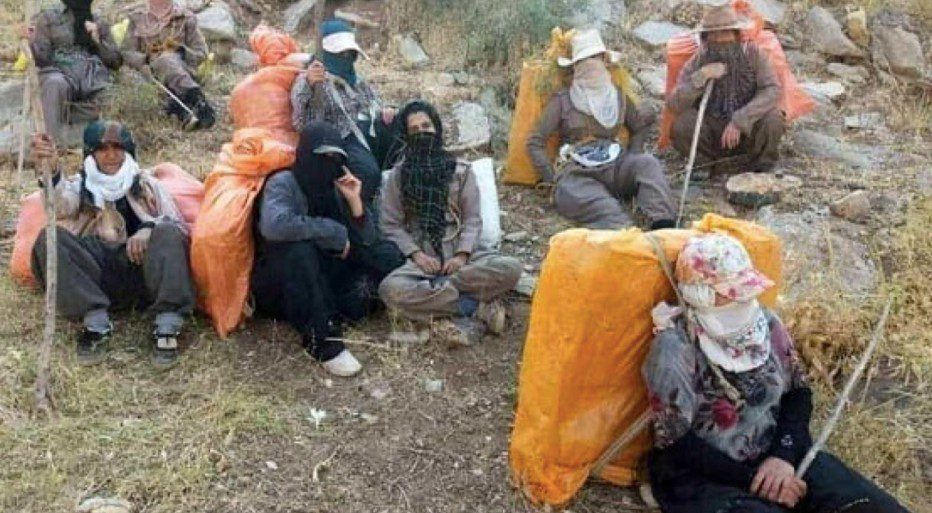In A Deplorable State Are The Female Kolbars Working On Iran’s Western Border Mountains


Abject poverty has forced women to carry heavy loads on Iran’s western border mountains’ tough and impassable roads.
Helaleh Amini, a representative of Kurdistan Province in the Supreme Council of Provinces, warned of the rising number of Kolbar women. Most of them carry fuel, tires, and cigarettes. In recent years, men have also got accustomed to female Kolabars, and to be a Kolbar is no longer a male job. It is said by some female Kolbars that they have to carry 30 kilos in the mountains for four or five hours. The number of women in Iran’s border areas has increased, while Aqsa Nakhshipour, the governor of Sardasht, has stated that this region’s unemployment rate is 23%. From summer 2019, the unemployment rate has risen from 11.4 % to 12.2%. The report comes amid reports in recent years of the deaths of several male and female Kolbars due to direct fire by border guards or frostbite.
Arasteh, a woman, has been a Kolbar working with her husband for four years. She looks like a 50-year-old woman, but she says she has not yet turned 40, and she is right. She goes for Kolbari twice a day. There is no strength left for her. She suffers from lumbar disc and leg pain. Of 200,000 Tomans (6.5 Euro) that she earns a night, 60,000 Tomans (2 Euro) is paid for road fare. She says that by the time we get home, the money goes to a night of Kolbari to buy a bread package, an egg comb, and two, three types of fruit, and it’s all no money is left. Trembling in fear, they walk in inclement weather of the Tete Marivan border. No one but her husband knows that she is a Kolbar. She wears men’s clothes and covers her face, like other women.
She says she knows at least 40 women Kolbar like her. Men can lift to 40 kg, but women can raise to 30 kg. They do not have power. It gets challenging to get out while your knee sinks in the snow with this amount of load on your back. She speaks painfully, and at the end of the day, with a broken face and sad eyes, he asks: Do you think that death is not honourable for this life?
Bread at the cost of life
Here the bread is earned at the cost of life. You have to carry the world on your back so that you can feed your stomach and your families, just feed. You have to take your bread out of the snow-covered bypaths of Iran’s Marivan heights and Iraq’s western borders. Carrying a full load for 10 hours in the cold and frost, and at the end of the day, eating bread and do not die, and staying at home for two whole days, until regaining strength and standing up again, day after day, day after day is a typical life of a Kolbar.
An undeniable truth
Kolbari lies in a state of confusion. It is not clear when Cyrus’s knot will be untied, either by hand or by tooth. While there is no exact and documented figure for the number of Kolbars, unofficial statistics are between 80,000 to 170,000. No one knows the number of Kolbar women in the real world. Although the evidence shows that not only are they not few, they are also increasing day by day; From teenage girls to older women and university graduates. These days, however, Kolbar women’s story in the three border provinces of Kurdistan, Kermanshah and West Azerbaijan is undeniable.
Source: Asriran news

